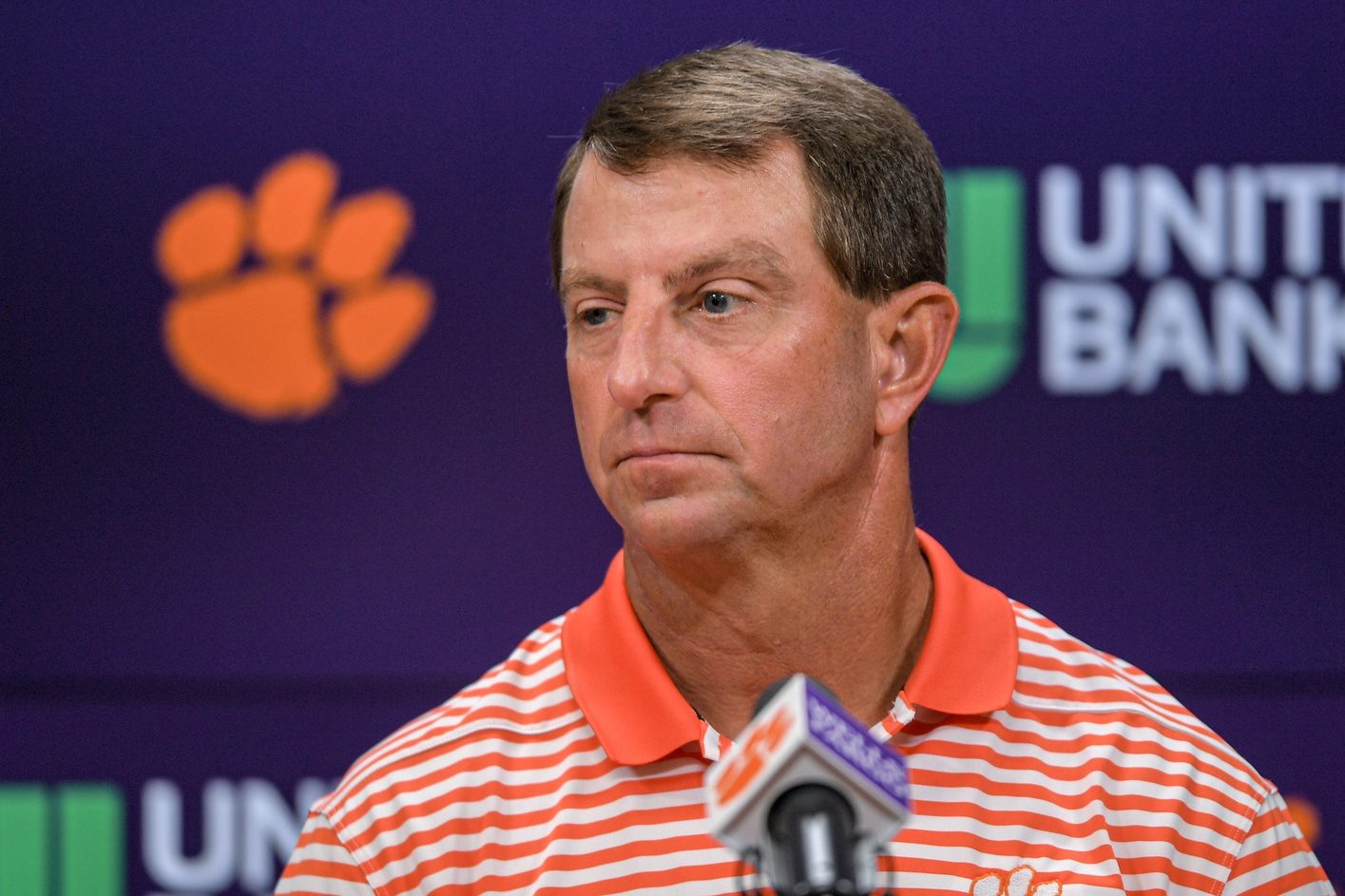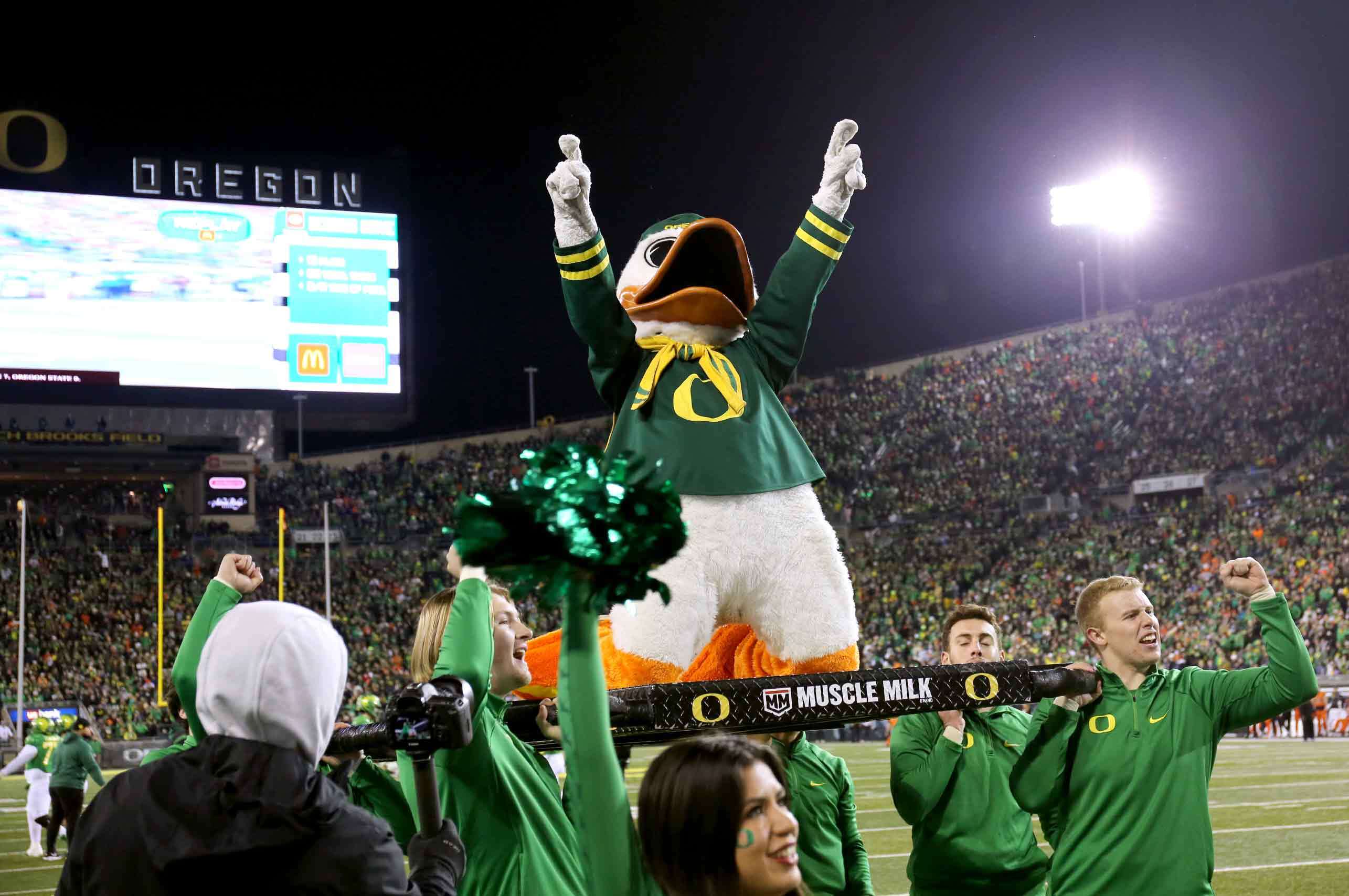
Who is Dabo Swinney? Dabo Swinney, born William Christopher Swinney on November 20, 1969, in Birmingham, Alabama, is the head football coach at Clemson University. Known for his inspiring journey from a challenging upbringing to leading Clemson to multiple national championships, Swinney's story is one of resilience and determination. Raised in Pelham, Alabama, he faced financial hardships but never wavered in his pursuit of success. Swinney's coaching career began at the University of Alabama, eventually leading him to Clemson in 2008. His unique coaching philosophy, often called "The Dabo Way," emphasizes team culture and player development, making him a standout figure in college football.
Early Life and Education
Dabo Swinney's journey to becoming a top college football coach began with humble beginnings and a strong educational foundation.
- Full Name: William Christopher "Dabo" Swinney was born on November 20, 1969, in Birmingham, Alabama.
- Early Life: Raised in Pelham, Alabama, by his parents, Carol McIntosh and Ervil Swinney, Dabo is the middle child of three boys, including Tracy and Tripp.
- Family Background: Despite financial struggles after his parents' divorce, Swinney's mother, Carol, played a crucial role in his upbringing. The family faced homelessness at times, but Swinney's determination and academic prowess kept him on track.
- High School Education: Swinney attended Pelham High School, where he excelled in multiple sports, including baseball and football. His high school coach encouraged him to pursue basketball at various colleges, but Swinney insisted on attending the University of Alabama, his father's favorite football team.
- College Years: Swinney enrolled at the University of Alabama in 1987. Despite financial challenges, he worked multiple low-wage jobs during the summer to pay for tuition, rent, and other expenses. He even opened a credit line with Discover to cover a $550 debt that could have led to his classes being dropped and his football eligibility being revoked.
- Greek Life: During his college years, Swinney was involved in Greek Life and was initiated as a brother of the Pi Kappa Alpha fraternity.
- Education Degrees: Swinney received his bachelor's degree in commerce and business administration from the University of Alabama in 1993. Two years later, he earned a master's degree in Business Administration from the same institution.
- Career Goals: Initially, Swinney's career goals included becoming a doctor and running a hospital. However, his passion for football eventually led him to pursue a career in coaching.
Coaching Career
Dabo Swinney's coaching career has been marked by significant achievements and a unique approach to team building.
- Coaching Career: Swinney began his coaching career as a graduate assistant at the University of Alabama in 1993. He then moved to the University of Alabama-Birmingham (UAB) as a wide receivers coach in 1995.
- Clemson Tigers: In 2008, Swinney took over as the interim head coach of the Clemson Tigers after Tommy Bowden's resignation. He was later named the permanent head coach in 2008.
- National Championships: Under Swinney's leadership, the Clemson Tigers won national championships in 2016 and 2018. His 2018 team is often considered one of the greatest college football teams of all time.
- Winningest Coach: Swinney is the winningest head coach in Clemson football history, with a record of 170-43 overall and a 12-8 bowl record.
- Contract Extension: In 2022, Swinney signed a contract extension through 2031 worth $115 million, solidifying his commitment to the program and ensuring his continued leadership.
- Team Performance: The 2022 season saw the Tigers start 8-0 and reach a #5 ranking before losing to Notre Dame 35-14. Despite this setback, the team remained in contention for the College Football Playoff until the regular season finale against South Carolina, where they lost 31-30.
Coaching Philosophy and Influence
Swinney's unique coaching philosophy and influence on the sport have set him apart from other coaches.
- Philosophy on Coaching: Swinney's coaching philosophy emphasizes building a strong team culture and developing talent from within. He has been vocal about his reluctance to use the NCAA transfer portal, instead focusing on nurturing his players through the program.
- The Dabo Way: Swinney's approach to coaching is often referred to as "The Dabo Way." This philosophy emphasizes empowering players, fostering a strong team culture, and staying true to one's values. It has influenced a new generation of coaches who seek to emulate his methods.
- Influence on Coaches: Swinney has built an unofficial coaching tree, with several coaches finding success by emulating his approach. His influence extends beyond Clemson, with coaches like Will Healy citing his guidance and support.
- Faith and Leadership: Swinney is outspoken about his faith and has been accused of foisting his beliefs onto his team. However, he has repeatedly denied this, stating that his faith is a personal matter and not something he imposes on others.
- Salary and Controversy: Swinney makes $9 million per year, which has sparked controversy given his stance against paying players. Despite this, his commitment to his team and his values remains unwavering.
Player Development and Charity Work
Swinney's commitment to player development and community service has made a significant impact on and off the field.
- Player Development Programs: Swinney has implemented various programs to aid players in their personal and professional development. The P.A.W. Journey, for example, helps players with resume writing and starting nonprofits. The team also engages in charity work during bye weeks each season.
- Charity Work: Clemson's commitment to charity work under Swinney's leadership has been notable. The team's involvement in community service projects reflects their dedication to giving back beyond the football field.
- Player Support: Swinney is known for his support of players who may not perform well early in their careers but show potential later on. This approach has led to the development of several players who have blossomed under his guidance.
- Leadership Style: Swinney's leadership style is characterized by his ability to inspire and motivate his team. He believes in empowering his players and creating a culture that values both winning and personal growth.
Challenges and Controversies
Despite his success, Swinney has faced challenges and controversies throughout his career.
- Comparison with Other Coaches: While coaches like Nick Saban and Urban Meyer have built extensive coaching trees, Swinney's influence is more about the culture and values he instills in his players rather than a sprawling network of coaches.
- Belief in Team: Swinney's belief in his team is unwavering. He often says, "I'm not an overachiever, I'm an over-believer." This mindset raises the level of belief in his coaches and players, contributing significantly to their success.
- Halftime Speeches: During games, Swinney often delivers impassioned halftime speeches that emphasize his team's potential and their ability to win. His confidence in his team's abilities is contagious and helps to boost their morale.
- Personal Story: Swinney's personal story is one of resilience and determination. He faced significant adversity, including homelessness and financial struggles, but never gave up on his dreams. This perseverance has inspired many within the football community.
- High School Football Experience: At Pelham High School, Swinney played multiple sports and was an honor student. His high school coach encouraged him to pursue basketball at various colleges, but Swinney's passion for football led him to the University of Alabama.
- Walk-On Program: Swinney was one of only two players out of 46 to survive the walk-on program at the University of Alabama in 1989. This experience taught him the value of hard work and determination.
- Clemson's First Championship Since 1981: Under Swinney's leadership, Clemson won its first national championship since 1981 in 2016. This achievement marked a significant milestone in the program's history and cemented Swinney's legacy as a top coach.
- Rematch Against Alabama: In 2017, Clemson faced Alabama in the national championship game, a rematch of the previous year's game. This time, Clemson emerged victorious, securing their second national championship under Swinney's leadership.
- Post-Game Interviews: After the 2017 national championship game, Swinney delivered an emotional post-game interview, thanking the people who had supported him throughout his journey. This moment highlighted his humility and gratitude for the opportunities he has received.
- Legacy at Clemson: Swinney's legacy at Clemson extends beyond his on-field achievements. He has transformed the program into a powerhouse, fostering a culture of excellence and teamwork that has inspired generations of players and coaches.
- Off-Field Issues: Despite his on-field success, Swinney has faced off-field issues, including the suspension of three players before the 2015 Orange Bowl and failed PED tests for three others before the 2023 Cotton Bowl. These incidents highlight the challenges faced by even the most successful programs.
- Transfer Portal Debate: Swinney's reluctance to use the NCAA transfer portal has sparked debate within the college football community. While some coaches rely heavily on transfers to fill roster gaps, Swinney believes in developing talent from within, a strategy that has yielded significant success for Clemson.
- Conservative Play-Calling: Critics have argued that Swinney's conservative play-calling has hindered Clemson's ability to score and secure victories. This approach has sparked debates about whether Swinney's game plans are too risk-averse, potentially costing the team opportunities to capitalize on its talent and athleticism.
- Pressure to Perform: The pressure to perform at an elite level is immense for Clemson, given its status as one of the most successful programs in college football. Fans and media alike hold high expectations for Swinney and his team, with any signs of decline or mediocrity leading to increased scrutiny.
- Recent Losses: Recent losses, such as the 2023 loss to Duke and Pittsburgh, have put Clemson's football program under scrutiny by the team's fan base. These setbacks have raised questions about Coach Swinney’s ability to motivate his team and make necessary adjustments during critical moments.
Achievements and Legacy
Despite challenges, Swinney's achievements and legacy continue to shine brightly in the world of college football.
- Historical Achievements: While historical achievements are respected, they do not hold the same day-to-day relevance as current performance. Modern media cycles and social media platforms amplify every performance—good or bad—fostering a culture where recent performance heavily influences public perception and narratives around athletes and teams.
- Financial Imperatives: College football is big business, with substantial financial investments from NIL to coaching staff. Consistent success translates into higher revenues from ticket sales, merchandise, and endorsements. Thus, teams face financial imperatives to perform well continuously, further driving the emphasis on recent results.
- Public Perception: The digital age has created an environment where attention spans are shorter, and the appetite for fresh, compelling stories is insatiable. Fans and analysts are more engaged with what is happening now rather than what happened in the past, making recent performance a critical factor in public perception.
- Clemson's Recent Success, Lack Thereof: Despite recent losses, Clemson remains one of the top programs in college football. The team's ability to bounce back from setbacks and maintain a competitive edge is a testament to Swinney’s leadership and the program's resilience.
- Notable Achievements: Under Swinney’s leadership, Clemson has achieved numerous notable milestones. The program has become a perennial contender on the national stage, boasting a 170-43 overall record and a 12-8 bowl record.
- Postseason Play: Swinney’s success extends to postseason play, where Clemson has a 6-4 record in CFP tournament games. This performance reflects the program’s sustained excellence and competitive dominance over the years.
- Coaching Philosophy: Swinney’s coaching philosophy emphasizes building a strong team culture and developing talent from within. This approach has been instrumental in Clemson’s success, as it fosters a sense of unity and shared purpose among the players.
- Player Development Programs: The P.A.W. Journey and other player development programs initiated by Swinney aim to help players grow both on and off the field. These initiatives reflect his commitment to the holistic development of his players.
- Charity Work During Bye Weeks: Each season, Clemson engages in charity work during their bye weeks. This community service reflects the team’s dedication to giving back and making a positive impact beyond the football field.
- Empowering Top Performers: Swinney believes in empowering his top performers. He encourages them to take on leadership roles and supports their growth both as athletes and individuals.
- Emotional Post-Game Interviews: After significant victories, Swinney often delivers emotional post-game interviews, thanking the people who have supported him throughout his journey. These moments highlight his humility and gratitude for the opportunities he has received.
- Legacy Beyond Football: Dabo Swinney’s legacy extends beyond his on-field achievements. He has transformed Clemson into a powerhouse program and inspired a new generation of coaches with his unique approach to building a team culture and developing talent from within.
Dabo Swinney's Lasting Impact
Dabo Swinney's journey from humble beginnings to becoming Clemson's head coach is nothing short of inspiring. His commitment to building a strong team culture and developing talent from within has transformed Clemson into a powerhouse. With two national championships and a record of 170-43, Swinney's achievements speak volumes. His coaching philosophy, often called "The Dabo Way," emphasizes empowering players and fostering a sense of unity. Despite facing challenges like off-field issues and recent losses, Swinney's leadership remains steadfast. His influence extends beyond the field, inspiring a new generation of coaches and players. Swinney's legacy is not just about wins and losses; it's about the values he instills in his team. As he continues to lead Clemson, his impact on college football will undoubtedly endure.
Was this page helpful?
Our commitment to delivering trustworthy and engaging content is at the heart of what we do. Each fact on our site is contributed by real users like you, bringing a wealth of diverse insights and information. To ensure the highest standards of accuracy and reliability, our dedicated editors meticulously review each submission. This process guarantees that the facts we share are not only fascinating but also credible. Trust in our commitment to quality and authenticity as you explore and learn with us.


